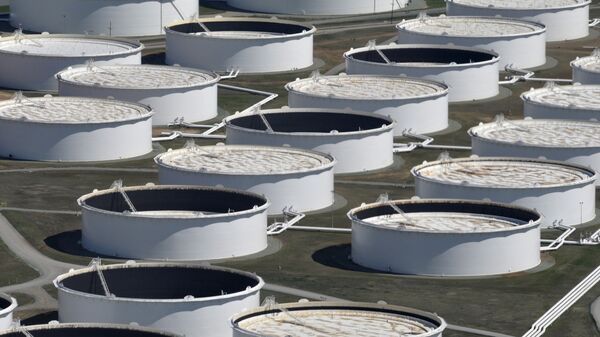The crude sell-off, expected to drain oil from three sites in Texas and Louisiana, was announced on 28 February, with the DoE taking bids on the crude stocks until 13 March.
According to geo-economics analyst and Sputnik contributor Maxim Rubchenko, the timing of the sell-off wasn't a coincidence, with the US' temporary waivers on Iranian crude oil sales to major importers including China, India, Turkey, Italy, Japan, South Korea, Greece, and Taiwan expected to expire on 4 May, just as the reserve US oil stocks will be entering the market.
With President Trump repeatedly criticising OPEC for oil prices being higher than he would like, and Iran enjoying daily oil exports of 1.1-1.3 million bpd in January and February despite earlier US promises to bring Iranian crude sales abroad down "to zero," the DoE's move seems to be aimed at preventing a global oil price hike when US waivers on Iranian crude expire, Rubchenko argues.
Oil prices getting too high. OPEC, please relax and take it easy. World cannot take a price hike — fragile!
— Donald J. Trump (@realDonaldTrump) 25 февраля 2019 г.
Zero Exports?
However, the analyst says that, notwithstanding US and, more recently, Israeli, threats, to combat "Iranian oil smuggling" once the sanctions waivers are withdrawn, there seems to be little chance of Iranian exports actually suffering a substantial decline.
"And this is largely due to Washington's own policy," the observer noted, citing the president's recent policy moves.
Officials in China, the second-largest buyer of Iranian oil, have already indicated repeatedly that they would not renege on Iranian crude in the face of US pressure, with the ongoing multi-billion dollar trade war between Washington and Beijing, as well as the scandal over US's criminal case against an executive of Chinese telecommunications giant Huawei, making the prospect of Chinese backing for the US's anti-Iranian efforts even less likely.
Accordingly, "even if Iranian exports do decline in May, this drop will be insignificant," Rubchenko emphasised.
Selloff May Backfire on US Shale
This, in turn, means that the dumping of the 6 million barrels worth of US crude reserves on the world market is only likely to result in a glut on the local markets, with prices dropping accordingly and harming the already shaky US shale oil industry even further.
In January, shale giant Hess Corp CEO John Hess told World Economic Forum attendees in Davos that oil prices of less than $60 a barrel for WTI would be harmful for the sector and lead to reduced investment. As of Friday trading, WTI prices stood at just over $56.




